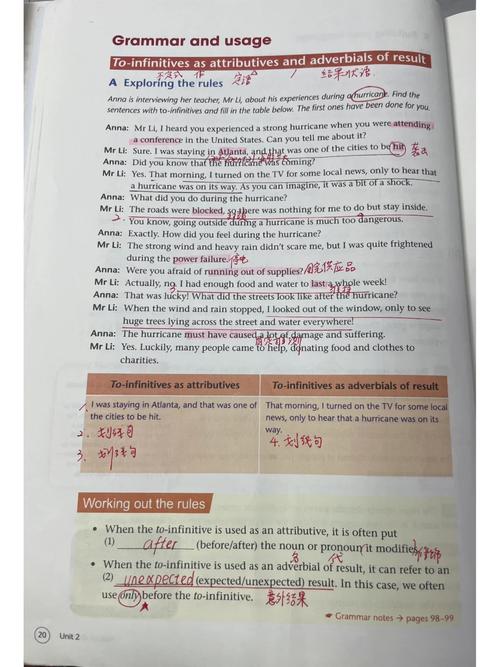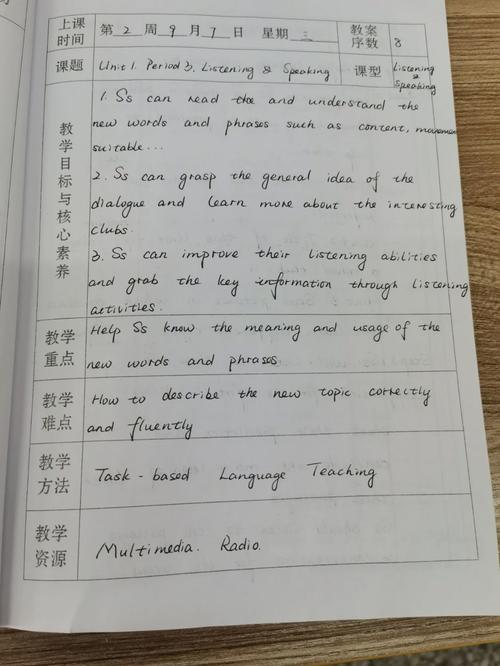好的,我可以帮助你进行英语训练。请告诉我你具体想要练习什么方面的英语,例如语法、词汇、口语、写作等。同时,你也可以告诉我你的英语水平,这样我可以更好地为你提供适合的训练。
Introduction to Effective English Training
English, as a global lingua franca, plays a crucial role in communication, education, and business. Whether you are a student aiming for academic excellence or a professional seeking to enhance your career prospects, effective English training is essential. This article delves into various strategies and techniques to help you improve your English proficiency.
1. Establish Clear Goals
Before embarking on your English training journey, it is vital to set clear, achievable goals. Determine whether you want to improve your speaking, listening, reading, or writing skills, or a combination of these. Having specific goals will guide your training process and help you stay focused.
2. Immersion and Exposure
Immersing yourself in an English-speaking environment is one of the most effective ways to improve your language skills. This can be achieved through travel, language exchange programs, or even by surrounding yourself with English media such as movies, TV shows, and podcasts. The more you expose yourself to the language, the more natural it will become.
3. Vocabulary Building

Expanding your vocabulary is a cornerstone of effective English training. Start by learning new words daily and incorporate them into your daily conversations and writing. Use flashcards, apps, or even a simple notebook to keep track of new words and their meanings. Remember to review your vocabulary regularly to reinforce your memory.
4. Grammar and Structure

A strong foundation in grammar and sentence structure is essential for clear and effective communication in English. Invest time in understanding the basics of grammar, such as verb tenses, sentence construction, and punctuation. Practice writing short essays or sentences to apply what you have learned and identify areas for improvement.
5. Listening and Speaking Practice

Improving your listening and speaking skills requires consistent practice. Engage in activities such as listening to English news broadcasts, participating in conversation clubs, or even recording yourself speaking to analyze your pronunciation and fluency. Don't be afraid to make mistakes; they are a natural part of the learning process.
6. Reading and Writing Exercises

Reading and writing are essential components of language learning. Read a variety of texts, including newspapers, novels, and scientific articles, to expose yourself to different writing styles and vocabulary. Practice writing essays, journal entries, or even short stories to enhance your writing skills and express your thoughts clearly.
7. Use Technology to Your Advantage

Technology offers numerous resources to aid in English training. Utilize language learning apps, online courses, and interactive websites to supplement your learning. Additionally, consider using social media to connect with native speakers and engage in conversations.
8. Seek Feedback and Reflect on Your Progress

Regularly seek feedback from teachers, language partners, or native speakers to identify your strengths and weaknesses. Reflect on your progress and adjust your training methods as needed. Celebrate your achievements and remain motivated to continue improving.
9. Engage in Continuous Learning

Language learning is a lifelong journey. Stay curious and continue seeking opportunities to practice and improve your English. Attend workshops, join online forums, or even consider taking formal courses to keep your skills sharp and up-to-date.
Conclusion

Improving your English proficiency requires dedication, practice, and a willingness to learn. By setting clear goals, immersing yourself in the language, building your vocabulary, and engaging in various language activities, you can achieve significant progress. Remember that language learning is a marathon, not a sprint, and with persistence and patience, you will reach your desired level of proficiency.










